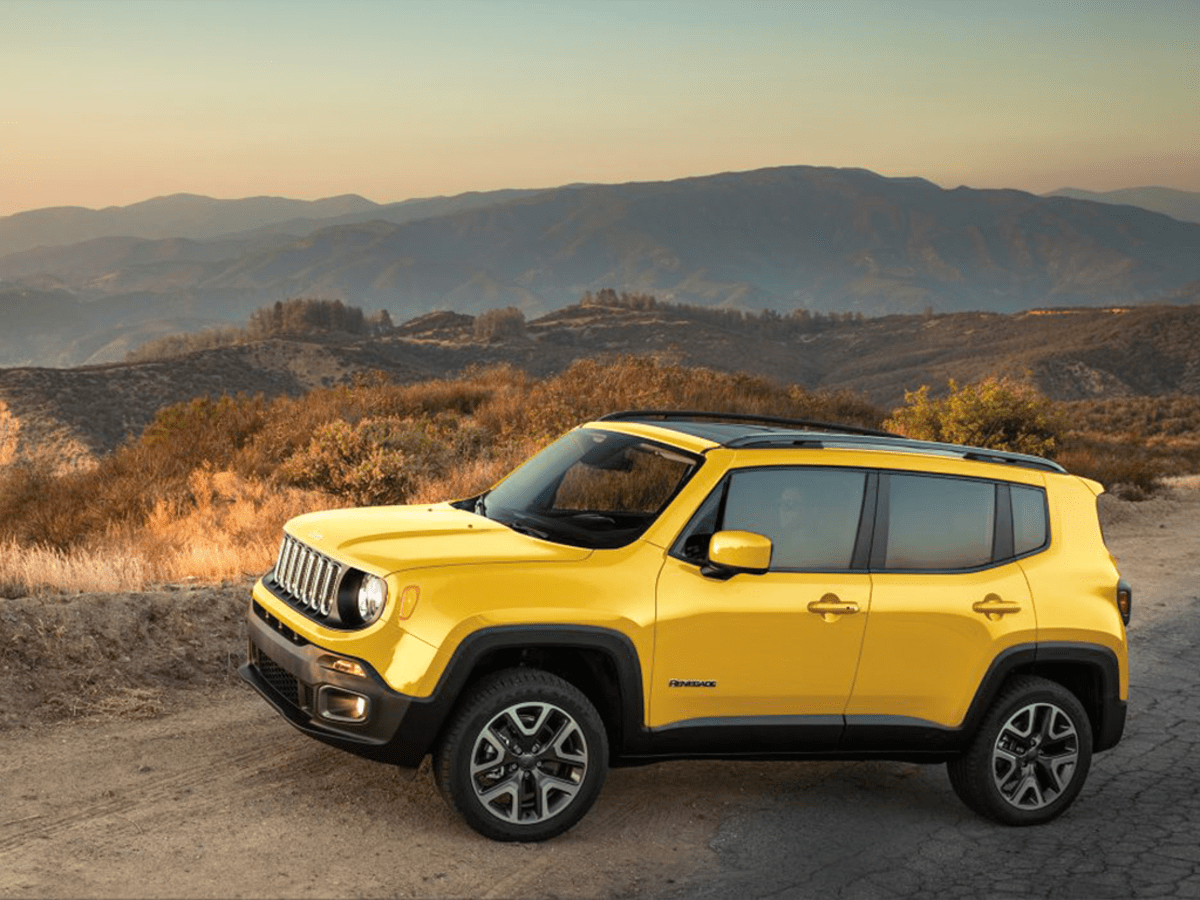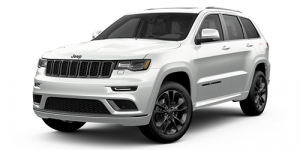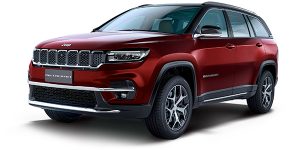Contents
Jeep is a brand that is synonymous with adventure, freedom, and exploration. For over 80 years, Jeep has been producing vehicles capable of conquering any terrain and challenge. Jeep is also a brand committed to technology and innovation, constantly striving to improve its products and services to meet its customers’ changing needs and expectations. Technology and innovation are crucial in the automotive industry, as they can enhance performance, efficiency, safety, convenience, and sustainability. This article will explore current and future trends and developments in Jeep technology and innovation and how they can impact the automotive industry and the Nepalese market.

Current Jeep Technology and Innovation
Jeep is known for its off-road capabilities and 4×4 systems, which enable its vehicles to traverse any terrain and condition. Jeep offers a range of 4×4 systems, such as the Selec-Terrain system, which allows the driver to choose from different modes depending on the terrain, such as Auto, Snow, Sand, Mud, or Rock. Jeep also offers the Selec-Trac system, which automatically switches between two-wheel drive and four-wheel drive depending on the road conditions. Jeep also offers the Quadra-Drive II system, which provides maximum traction and control by transferring torque to the wheels with the most grip.
Jeep is also known for its safety and driver-assistance features, which help to prevent accidents and protect occupants. Jeep offers a range of safety and driver-assistance features, such as the Blind Spot Monitoring system, which alerts the driver of vehicles in the blind spot zones. Jeep also offers the Forward Collision Warning with Active Braking system, which warns the driver of potential frontal collisions and applies brakes if necessary. Jeep also offers the Adaptive Cruise Control with Stop and Go system, which maintains a set distance from the vehicle ahead and adjusts speed accordingly.
Jeep is also known for its infotainment and connectivity options, which enhance the user experience and convenience. Jeep offers a range of infotainment and connectivity options, such as the Uconnect system, which provides access to various features and functions, such as navigation, entertainment, communication, and settings. Jeep also offers the Apple CarPlay and Android Auto systems, allowing users to connect their smartphones and access various apps and features, such as music, maps, messages, and calls. Jeep also offers the Wireless Charging Pad system, allowing users to charge their smartphones without cords or cables.
Jeep is also known for its electric and hybrid vehicle initiatives, which aim to reduce its environmental impact and improve efficiency. Jeep offers a range of electric and hybrid vehicles, such as the Jeep Wrangler 4xe, a plug-in hybrid electric vehicle that combines a 2.0-litre turbocharged engine with two electric motors and a battery pack. The Jeep Wrangler 4xe can run on electric, hybrid, or eSave modes, depending on the user’s preference and driving conditions. The Jeep Wrangler 4xe can deliver up to 375 horsepower and 470 lb-ft of torque while achieving up to 25 miles of electric range and up to 50 MPGe.
Future Trends and Developments
Jeep is not resting on its laurels but looking ahead to the future of technology and innovation in the automotive industry. Jeep is working on various projects and initiatives that aim to enhance its products and services and meet its customers’ evolving needs and expectations. Here are some of the future trends and developments in Jeep technology and innovation that we can expect to see in the coming years:
- Electric and Autonomous Vehicles: Jeep is committed to electric mobility and autonomous driving, as they can offer various benefits, such as reduced emissions, improved efficiency, enhanced safety, and increased convenience. Jeep is planning to launch more electric and hybrid vehicles, such as the Jeep Grand Cherokee 4xe, a plug-in hybrid electric vehicle that will offer a range of features and functions similar to the Jeep Wrangler 4xe. Jeep is also planning to launch fully electric vehicles, such as the Jeep Wagoneer EV Concept, an electric SUV that will offer a range of features and functions similar to the Jeep Wagoneer Concept. Jeep is also working on integrating autonomous driving technologies into its vehicles, such as the Level 3 autonomous driving system, allowing the vehicle to take over most of the driving tasks under certain conditions.
- Advanced Materials and Manufacturing Processes: Jeep is also working on using advanced materials and manufacturing processes, as they can offer various benefits, such as improved performance, reduced weight, and lower costs. Jeep is planning to use lightweight materials, such as aluminium, carbon fibre, or magnesium, in its vehicles, which can reduce the vehicle’s weight and improve its efficiency and performance. Jeep is also planning to use advanced manufacturing techniques, such as 3D printing, additive manufacturing, or digital manufacturing, in its production process, which can reduce production time and cost and increase the customization and flexibility of its products.
- Enhanced Connectivity and Infotainment: Jeep is also working on enhancing its connectivity and infotainment options, as they can offer various benefits, such as improved user experience, convenience, and functionality. Jeep is planning to integrate artificial intelligence and voice assistants into its vehicles, such as the Amazon Alexa system, which will allow the user to control various features and functions of the vehicle using voice commands. Jeep is also planning to integrate augmented reality and heads-up displays into its vehicles, which will project various information and images onto the windshield or the dashboard, such as navigation, speed, or alerts. Jeep is also planning to integrate advanced connectivity options into its vehicles, such as the 5G network, allowing users to connect their vehicles with other smart devices and access various services and features, such as streaming, gaming, or cloud computing.
- Sustainable and Eco-Friendly Initiatives: Jeep is also working on implementing sustainable and eco-friendly initiatives, as they can offer various benefits, such as reduced environmental impact, improved social responsibility, and increased customer satisfaction. Jeep is planning to expand its electric and hybrid vehicle lineup in the future, which will reduce its carbon footprint and emissions. Jeep is also planning to develop sustainable manufacturing practices in the future, which will reduce its waste and energy consumption. Jeep is also planning to integrate renewable energy solutions into its charging infrastructure in the future, which will reduce its dependence on fossil fuels and increase its use of clean energy sources.
- Advanced Safety Features: Jeep also enhances its safety features, as they can offer various benefits, such as improved safety, reduced accidents, and increased confidence. Jeep plans to integrate advanced driver-assistance systems (ADAS) into its vehicles, which will assist the driver in various driving tasks and situations, such as lane-keeping assist, adaptive cruise control with stop and go, or park assist. Jeep also plans to integrate enhanced collision avoidance technologies into its vehicles, preventing or mitigating collisions with other vehicles or objects, such as automatic emergency braking, blind spot detection, or rear cross-traffic alert. Jeep is also planning to integrate vehicle-to-vehicle communication and cooperative systems into its vehicles, allowing them to communicate and cooperate with other vehicles on the road, such as platooning, traffic jam assist, or intersection assist.
Implications and Benefits
The future of Jeep technology and innovation will have various implications and benefits for the automotive industry and the Nepalese market. Here are some of the implications and benefits that we can expect to see in the coming years:
- Improved off-road capabilities and performance: The future of Jeep technology and innovation will improve its vehicles’ off-road capabilities and performance, enabling them to conquer any terrain and challenge. The future of Jeep technology and innovation will enhance the 4×4 systems, the suspension systems, the traction control systems, and the powertrain systems of its vehicles, which will improve their traction, stability, handling, and power. This will benefit the Nepalese market, allowing the Jeep vehicles to adapt and perform well on Nepal’s diverse and rugged terrain, such as the mountains, the hills, or the plains.
- Enhanced safety and reduced accidents: The future of Jeep technology and innovation will enhance the safety and reduce the accidents of its vehicles, which will protect the occupants and other road users. The future of Jeep technology and innovation will enhance its vehicles’ safety features, driver-assistance features, collision avoidance features, and autonomous driving features, which will prevent or mitigate collisions, warn or assist the driver, and take over some of the driving tasks. This will benefit the Nepalese market, as it will reduce the risk of accidents and injuries on the roads of Nepal, which can be congested, chaotic, or hazardous.
- Reduced carbon footprint and environmental impact: The future of Jeep technology and innovation will reduce the carbon footprint and environmental impact of its vehicles, which will contribute to a cleaner and greener planet. The future of Jeep technology and innovation will reduce its vehicles’ emissions, fuel consumption, and energy consumption, improving their efficiency and sustainability. This will benefit the Nepalese market, as it will reduce the pollution and greenhouse gas emissions in Nepal, which can affect the air quality, climate change, or natural resources.
- Enhanced user experience and convenience: The future of Jeep technology and innovation will enhance the user experience and convenience of its vehicles, which will increase their satisfaction and loyalty. The future of Jeep technology and innovation will enhance the infotainment features, connectivity features, navigation features, and artificial intelligence features of its vehicles, improving their functionality and entertainment. This will benefit the Nepalese market, increasing the comfort and enjoyment of Jeep drivers and passengers in Nepal, who can access various services and features, such as music, maps, messages, or calls.
Challenges and Considerations
The future of Jeep technology and innovation will also face some challenges and considerations that will need to be addressed and resolved. Here are some of the challenges and considerations that we can expect to see in the coming years:
- Infrastructure requirements for electric and autonomous vehicles: The future of Jeep technology and innovation will require adequate and reliable infrastructure for electric and autonomous vehicles, such as charging stations, road signs, traffic signals, or communication networks. This will pose a challenge for the Nepalese market, as it will require significant investment and development of the infrastructure in Nepal, which can be limited, outdated, or inaccessible in some areas or regions.
- Consumer acceptance and adoption of new technologies: The future of Jeep technology and innovation will require consumer acceptance and adoption of new technologies, such as electric vehicles, autonomous vehicles, or connected vehicles. This will pose a challenge for the Nepalese market, as it will require consumer awareness and education of the benefits and features of the new technologies, as well as consumer trust and confidence in the safety and reliability of the new technologies.
- Regulatory and legal challenges in implementing autonomous driving: The future of Jeep technology and innovation will require regulatory and legal difficulties in implementing autonomous driving, such as defining the roles and responsibilities of the driver, the vehicle, and the manufacturer; establishing the standards and protocols for testing and certification; or determining the liability and insurance for accidents or damages. This will pose a challenge for the Nepalese market, as it will require coordination and cooperation among various stakeholders and authorities in Nepal, such as the government, the industry, and the public.
- Ensuring data security and privacy in connected vehicles: The future of Jeep technology and innovation will require ensuring data security and privacy in connected vehicles, such as protecting the data and information that are collected, stored, or transmitted by the vehicles; preventing unauthorized access or misuse of the data and information; or respecting the rights and preferences of the data owners and users. This will pose a challenge for the Nepalese market, as it will require compliance and enforcement of the data protection laws and regulations in Nepal and awareness and education of the data security and privacy issues and risks.
Jeep is a brand committed to technology and innovation, constantly striving to improve its products and services to meet its customers’ changing needs and expectations. Jeep is working on various projects and initiatives that aim to enhance its products and services and meet its customers’ evolving needs and expectations. The future of Jeep technology and innovation will have various implications and benefits for the automotive industry and the Nepalese market, such as improved off-road capabilities and performance, enhanced safety and reduced accidents, reduced carbon footprint and environmental impact, and enhanced user experience and convenience. The future of Jeep technology and innovation will also face some challenges and considerations that will need to be addressed and resolved, such as infrastructure requirements for electric and autonomous vehicles, consumer acceptance and adoption of new technologies, regulatory and legal challenges in implementing autonomous driving, ensuring data security and privacy in connected vehicles. Jeep is a brand ready to face these challenges and considerations and is confident in its role in shaping the future of mobility and off-road vehicles. Jeep is a brand that is ready for the future. Are you?










0 Comments